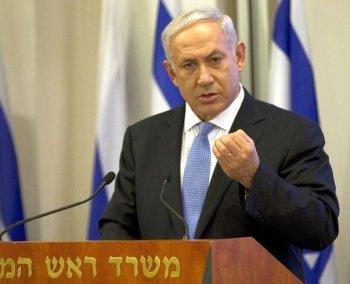KFAR KARA—At the junction of the Arab village of Kfar Kara, Arabs and Jews stood in a peaceful demonstration, wearing white scarves and holding olive branches. They held hands together, standing silently and solemnly. Passing vehicles cheered their support for peaceful co-existence in Israel.
The symbolic chain of Arabs and Jews standing hand in hand, was initiated by Amana Kna’an, an Arab resident of Kfar Kara village, a mother of three and CEO of a society for women’s advancement. Kna’an established “Green Carpet,” a movement for promoting the social fabric of Jews and Arabs living side by side and developing tourism in Wadi Ara, a narrow ravine in the north of Israel that is home to both Arabs and Jews.
Her aim was to create a space where both sides can speak of the confusion, fear and frustration they experience during the war. Kna’an stood against the bombing of the South-Israeli town of Sderot, and before this war began, she went with other women to express their identification with the people of Sderot.
But such events don’t make the news, she said.
Eva Brenner, an artist, arrived from Austria days earlier. When friends told her about the demonstration, which was held last Saturday, she immediately decided to come along.
The symbolic chain of Arabs and Jews standing hand in hand, was initiated by Amana Kna’an, an Arab resident of Kfar Kara village, a mother of three and CEO of a society for women’s advancement. Kna’an established “Green Carpet,” a movement for promoting the social fabric of Jews and Arabs living side by side and developing tourism in Wadi Ara, a narrow ravine in the north of Israel that is home to both Arabs and Jews.
Her aim was to create a space where both sides can speak of the confusion, fear and frustration they experience during the war. Kna’an stood against the bombing of the South-Israeli town of Sderot, and before this war began, she went with other women to express their identification with the people of Sderot.
But such events don’t make the news, she said.
Eva Brenner, an artist, arrived from Austria days earlier. When friends told her about the demonstration, which was held last Saturday, she immediately decided to come along.

